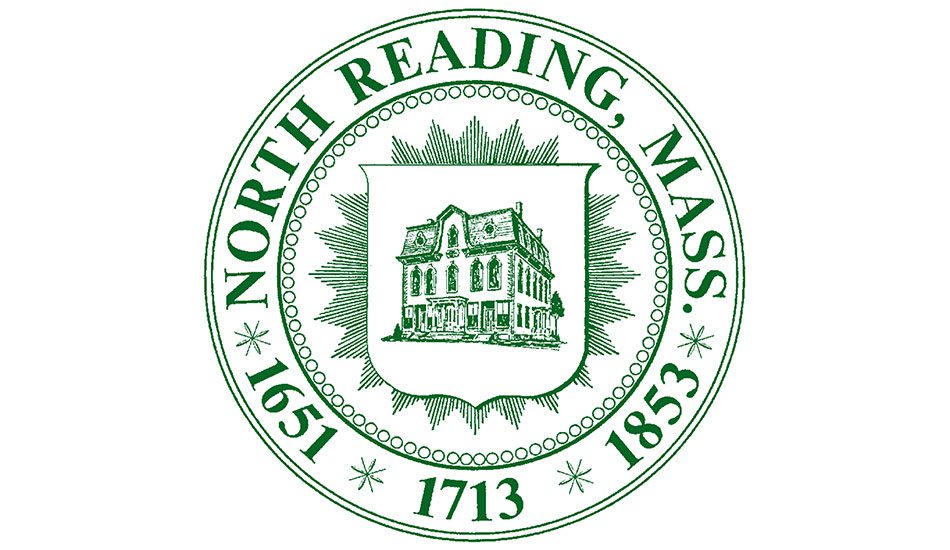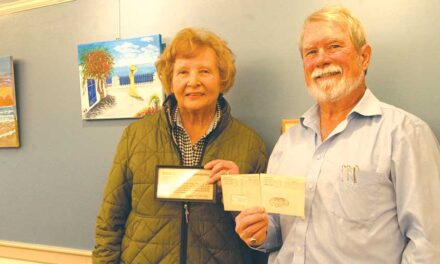By MAUREEN DOHERTY
NORTH READING — It took just over 90 minutes for the 109 voters in attendance at Monday’s annual Town Meeting to dispense with all 27 articles.
Virtually no questions were asked by the voters on 26 out of 27 of the warrant articles, in large part because town officials worked for months, both behind the scenes at department head and Financial Planning Team meetings and at public budget meetings of the Select Board, School Committee and Finance Committee to prepare a totally balanced budget that takes care of the town’s day-to-day operations, along with the most pressing of the town’s capital needs in FY23, within the confines of the town’s available revenue sources.
Highlights included unanimous passage, on a voice vote, of Article 12, part 1, for an FY23 operating budget of $76,494,429. This included a correction to line 91 in the 114-line budget stating that this line item would be funded with $142,000 in Free Cash.
The second motion under Article 12 required a 2/3rds majority to fund debt service stated in line 101 at $7,719,826 through “raise and appropriate” and “transfers.” It also passed unanimously on a voice vote.
Betterment amendment passes
About half of the meeting time was spent discussing Article 26, a request by the town to amend the town’s General Bylaws under assessments to facilitate more flexibility than currently allowed for betterment projects.
The existing bylaw was rigid in that it required a strict 50/50 split between the town and the property receiving the “betterment.”
According to a presentation by Town Administrator Michael Gilleberto, if left unchanged, the betterment bylaw when assessing for the sewer project would require the town to provide “50% of funds required based on availability of funds.” It would also require that a “majority vote of abutting property owners based on estimated usage.” Additionally, it would require “assessments to bettered properties be the lower of estimates versus actual costs, placing the burden of any shortfall on the town.”
Gilleberto stated the requested change to the bylaw would be “consistent with state law regarding betterments” in several areas by replacing the language requiring the town to pay at least 50% of the funds with “language granting Town Meeting the authority to determine the percentage, or, in the absence of such determination, the Select Board (would) determine a percentage to be borne by the town.”
It would further eliminate the requirement that “a majority of the abutting property owners vote in favor of a project, which could prevent assessment of the cost of a sewer project on benefitted landowners.”
Furthermore, the change would allow the Select Board to “separate costs to be immediately assessed to sewer-abutting property owners as ‘sewer betterment assessments’ from those costs to be reserved for sewer privilege fee assessments to non-abutting properties that connect to the sewer line in the future.” It would also enable the board to “separate the costs of general betterment facilities, such as pump stations, trunk and force mains, from that of ‘special benefit facilities’ such as sewer mains serving abutting properties.”
Gilleberto pointed out that the existing requirement that the town pay 50% of all costs “is ultimately the responsibility of the taxpayer, and the appropriate share might vary depending upon the project. Removing this requirement will allow the town to determine, through Town Meeting, or the Select Board, the appropriate percentage to be borne by the taxpayer per project.”
He also stated these changes will ensure that there are no “free rides” by properties that were initially not “bettered” or were developed after the betterment assessment is calculated by accessing “new or additional sewer capacity.”
Since projects of this size will require bonding, approval of the funding for any project is required for it to proceed as a 2/3rds majority approval is required at Town Meeting for all bonding projects, not just those created under a betterment process.
The final safeguard to the taxpayers and abutters, according to Gilleberto, is the state law that includes a “fairness limit” which requires that “the betterment assessed to each property along the project not exceed the actual benefit to that property.”
Only a limited portion of the town will be able to access the future sewer lines should the project ultimately be approved at a Special Town Meeting perhaps this coming fall, once the results of the year-long preliminary assessment study approved by voters last October is completed within the next several weeks.
As Select Board member Steve O’Leary pointed out, the state will give the town a permit regulating the maximum daily flow that will be allowed to be discharged to the Greater Lawrence Sanitary District (GLSD). The major areas under consideration at this time are Main Street, Concord Street and portions of Park Street, Lowell Road and North Street heading out toward Wilmington.
Larry Soucie of Allston Road voiced concern that this proposal could divide the town between East and West as an unintended consequence, setting a bad precedent for a majority rule at Town Meeting and eliminating “protections” currently provided under the 50% minimum split on the town side. “People on the other side of town, if they vote the town pay 50%, their tax bills are going to go up,” he said.
The proposed sewer route would pass by the home of Jodi Cloney, 365 Park St. She voiced concerns about the abutters losing their ability to approve or disapprove of a potential betterment project by allowing non-abutters at Town Meeting to weigh in on how much they will ultimately pay.
Moderator John Murphy explained that for a project of this size, which will require bonding, the decision to proceed would have had to come before the entirety of Town Meeting to ensure there was a 2/3rds majority approval of the bonding project regardless of whether the 50/50 minimum split under the current bylaw was changed if Article 26 was approved.
Michael Geoffrion Scannell of 44 Burroughs Rd., spoke in favor of the article “even though I live in the Martins Pond area. We hope it will benefit our neighborhood,” he said, noting that the current requirement for 50% of the abutters to approve of any betterment project “is a detriment to getting it passed in a neighborhood like ours; it is so divisive. The reason it is called a betterment is it betters your property and you will never have to put in a new septic again.” He added that the cost will be divided up into payments of at least 20 years “with little to no interest,” so the bill will not come due all at once.
Gilleberto confirmed that a payback period of up to 30 years is allowed under state law for such betterments.
The vote ultimately carried on a voice vote to amend the bylaw to eliminate the 50/50 town/abutter split.





